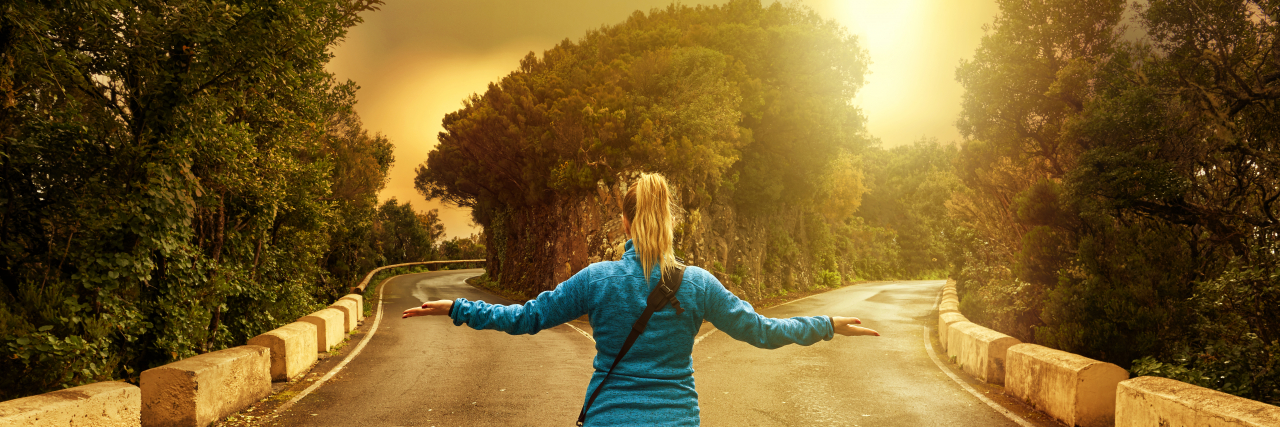The Pain of Watching Friends Drift Away After You Become Chronically Ill
Since 2005, my full-time job has been managing my health. If it were my chosen career, I’d be considered an undeniable success story since I’ve risen up the ladder quite rapidly. But in this world, managing chronic illness and pain doesn’t win you any promotions or accolades. It’s an often isolating experience.
I was born with a congenital birth defect of my pancreatic duct and a gene mutation which led to chronic pancreatitis and the eventual removal of my pancreas, gallbladder, spleen, duodenum, and part of my stomach. As a result, I have a myriad of health issues including diabetes, gastroparesis, GERD and bile reflux, small intestine bacterial overgrowth, difficulty digesting vitamins and minerals, and chronic pain.
The trajectory of my illness has been riddled with ups and downs these past 15 years. It’s impossible not to draw corollaries between my health and my personal and work lives since they’re intricately woven together.
Before I became ill, I worked full-time for a national non-profit organization, which meant I put in long hours and traveled on a regular basis. I was also doing freelance writing on the side and finishing up my undergraduate degree. I was newly remarried, my elderly mom was living with us, and we’d recently become foster parents to a 10-year-old girl.
I was part of a group of close friends who spent a lot of time together – going on vacations, celebrating holidays, watching Super Bowl games, hanging out on the weekends. One couple even acted as godparents to my two kids while they were growing up.
But, like so many who live with chronic illness and pain, my world became smaller as my disease progressed. It’s hard for those who are healthy to wrap their mind around what we go through on a daily basis. And when the illness is “invisible,” it’s even harder.
By the time I had my pancreas removed in a 10-hour surgery in 2011, most of my friends had moved on. Those who had once been in my inner circle didn’t come to see me in the hospital (granted it was more than 500 miles away) or call in the 18 days I was there. Once home, there were no check-in calls or texts asking how I was doing or if I needed anything. The silence was deafening.
It took me several years to truly understand that what happened with my friends was not malicious or intentional. It was the unfortunate by-product of change. It was the natural shift that occurs when people are no longer moving in the same direction. Like a road that reaches a fork, I went left while they went right.
Being chronically sick also helped me to better understand the nuances of friendship. Up until then, I believed that friends who socialized a great deal, who traveled together, enjoyed holidays together, and hung out together were by nature “close” friends. But once chronic illness entered the picture, the friendships were not deep enough to withstand the changes they brought to bear.
S. Kelley Harrell says: “Miraculously recover or die. That’s the extent of our cultural bandwidth for chronic illness.” As a culture, Americans do better with the finality of death.
There are religious and cultural conventions for observing the passing of loved ones. People attend funerals or memorial events, send cards and flowers, make donations to the person’s favorite charity, and bring casseroles. There is usually enormous support for the first weeks and months after a death and often a more quiet acknowledgment among good friends for years afterward.
But the same cannot be said about chronic illness where the “loss” isn’t final and the emotional agony is ongoing. There are no cards that acknowledge when an illness becomes a continual challenge unless, of course, it’s for a hospital stay or operation. There are no ceremonies for when that individual’s life is changed immeasurably. We simply have no rituals for the sustained grief that keeps on giving or the agony that becomes a way of life.
Once I began having to routinely cancel plans; once I was no longer able to drink alcohol or share a meal; once I could no longer be as active as I had been when healthy, the natural consequence of these changes led to them continuing on without me. I became expendable because, after all, who wants to hang around someone who is always sick or in pain?
As they drifted away, I felt an isolation and grief that was crushing. I blamed myself for losing friends who had been in my life for more than a decade. It didn’t make it easier knowing that most people pull away during times of crisis because of their own shortcomings and inability to handle the stress and limitations brought on by chronic illness and pain. Logically that made sense. Emotionally I was devastated, and watching my friends drift away was almost as painful as my illnesses.
Fortunately, I’ve been blessed with a few long-term friends who have navigated my illness along with me. And there are those who have become friends since I became chronically ill. They don’t ask “Why?” They don’t wonder when I’ll be “cured” or “back to normal.” They are able to tolerate the unknown and sit with me in my grief and struggle, and celebrate with me in my joys. They were (and remain) my saviors.
This story originally appeared on You Don’t Look Sick.
Getty image by stock_colors.

